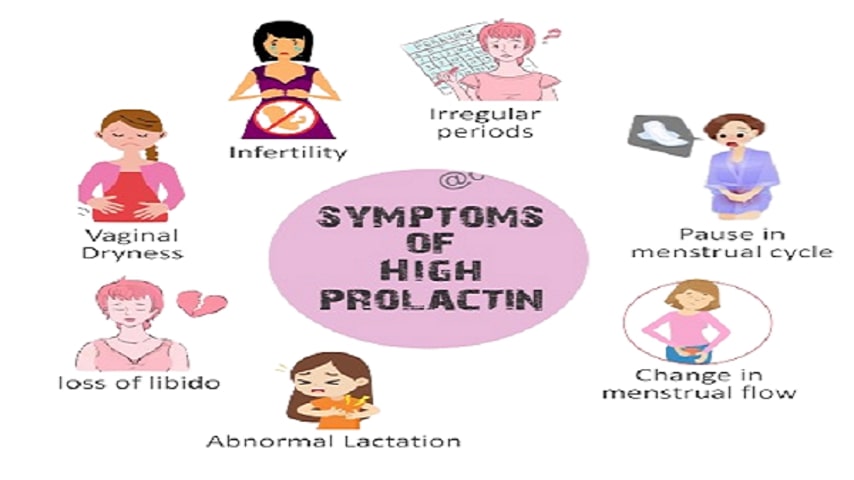Patients’ first-hand accounts of hyperprolactinemia
Hyperprolactinemia, or high blood levels of prolactin, may have major consequences for a person’s mental, emotional, and social well-being. Here, we look at hyperprolactinemia from every angle, including its causes, symptoms, diagnosis, and possible treatments. We also look at the real-life experiences of people with hyperprolactinemia to provide further light on the problems and coping techniques they confront. We want to get a better understanding of the issue and help people suffering from hyperprolactinemia by sharing personal stories and professional viewpoints.
Short Overview of Hyperprolactinemia
If hyperprolactinemia were a party guest, it would most likely be the one that arrives late and does not inquire nicely. This hormonal condition is distinguished by increased levels of prolactin, the hormone that stimulates the production of breast milk. Stress or irritating pituitary tumors might be to blame.
Cabergoline is used to treat hyperprolactinemia (high levels of prolactin, a natural substance that helps breast-feeding women produce milk but can cause symptoms such as infertility, sexual problems, and bone loss in women who are not breast-feeding or men). Cabergoline is in a class of medications called dopamine receptor agonists. It works by decreasing the amount of prolactin in the body.
Significance and Fundamental Reasons
In its most basic form, hyperprolactinemia is defined as abnormally high prolactin levels in the bloodstream. This might be caused by a variety of things, including certain drugs, stress, hypothyroidism, and those troublesome pituitary tumors we discussed before. Consider it your body’s way of suspending regular prolactin control.
Quality and Danger Factors
This hormonal blunder affects both sexes equally and may disrupt the delicate balance of the endocrine system. A few drugs, pregnancy (sorry, new mothers), and even extreme breast stimulation may increase the risk.
What are the signs of hyperprolactinemia, and what is it?
Hyperprolactinemia might be equated to your body’s unrecognized performance. If you understand the underlying reasons and symptoms of this ailment, you can treat it more successfully.
Primary causes of elevated prolactin levels
Increased prolactin levels may be produced by a variety of factors, ranging from benign ones like stress and thyroid problems to more dangerous ones like pituitary adenoma. Classify it as a hormonal murder mystery.
Typical External Signs and Symptoms
Hyperprolactinemia may impair menstruation, fertility, and breast milk production in non-nursing adults. It’s as if you’d invited your body to an unexpected circus show.
Identifying the Root Cause and Possible Solutions
Finding the best therapy for hyperprolactinemia and obtaining a comprehensive diagnosis might seem like solving a Rubik’s Cube in the dark. Fortunately, there are solutions to this hormonal issue.
Cabergoline 0.5mg is used to treat a variety of illnesses that arise from excessive production of the hormone prolactin. It may be used to treat pituitary prolactinomas, which are tumors of the pituitary gland, as well as certain menstruation issues and issues with fertility in both sexes.
Evaluation of Hyperprolactinemia
Magnetic resonance imaging (MRI) and blood tests may be performed to diagnose hyperprolactinemia and rule out potential causes. One may even use a magic wand (just joking). If hormones were a detective’s number one suspect, they would be.
Medical Care and Management
Potential treatments include surgery to remove the pituitary tumor, prolactin-lowering medication, and lifestyle changes to promote hormonal balance. It’s like treating your endocrine system to a spa day to rest and regenerate.
Hyperprolactinemia and its Effects on Daily Functions
Having an annoying roommate who steals your pizza and messes up your Netflix queue is comparable to having hyperprolactinemia. Its idiosyncrasies will be simpler to cope with if you are prepared for the obstacles it may provide.
Challenges to Mental and Physical Well-being
Hyperprolactinemia may have a significant influence on your physical and emotional well-being, including infertility, mood swings, and excessive tiredness. Hormone control is like to being on a never-ending rollercoaster.
Social Justice and Close Relationships Concerns
Managing social settings and maintaining healthy relationships might be challenging when one has hyperprolactinemia. You feel socially uncomfortable when you have to inform your pals that you can’t drink endless mimosas owing to prescription side effects.
Testimonials from Patients with Hyperprolactinemia
Hyperprolactinemia causes your prolactin levels to skyrocket, much like during Mardi Gras. Dealing with this sickness may be really thrilling. It is quite valuable to hear from people who have been through everything, from dealing with unexpected symptoms to understanding therapeutic choices.
Coping Strategies and Resources for Patients and Families With Hyperprolactinemia
Having coping techniques in place is critical when your body seems to be holding an unexpected prolactin after-party. You may handle the highs and lows of hyperprolactinemia with style if you rely on support groups, treat self-care as a religion, or just take some time to relax. Here are some hyperprolactinemia management tactics that will leave you feeling less like “what in the hormonal chaos is going on here” and more like “I got this.”
Finally, hyperprolactinemia patients strive to enhance their quality of life while managing their symptoms. They may be able to overcome these obstacles with the right diagnosis, treatment, and support. By sharing these firsthand accounts, we want to increase awareness of the many effects that hyperprolactinemia may have on people and highlight the need of obtaining the required medical and psychological care. If we continue our research and raise community awareness, we may be able to enhance our understanding of hyperprolactinemia and our capacity to treat it for everyone who are affected.






